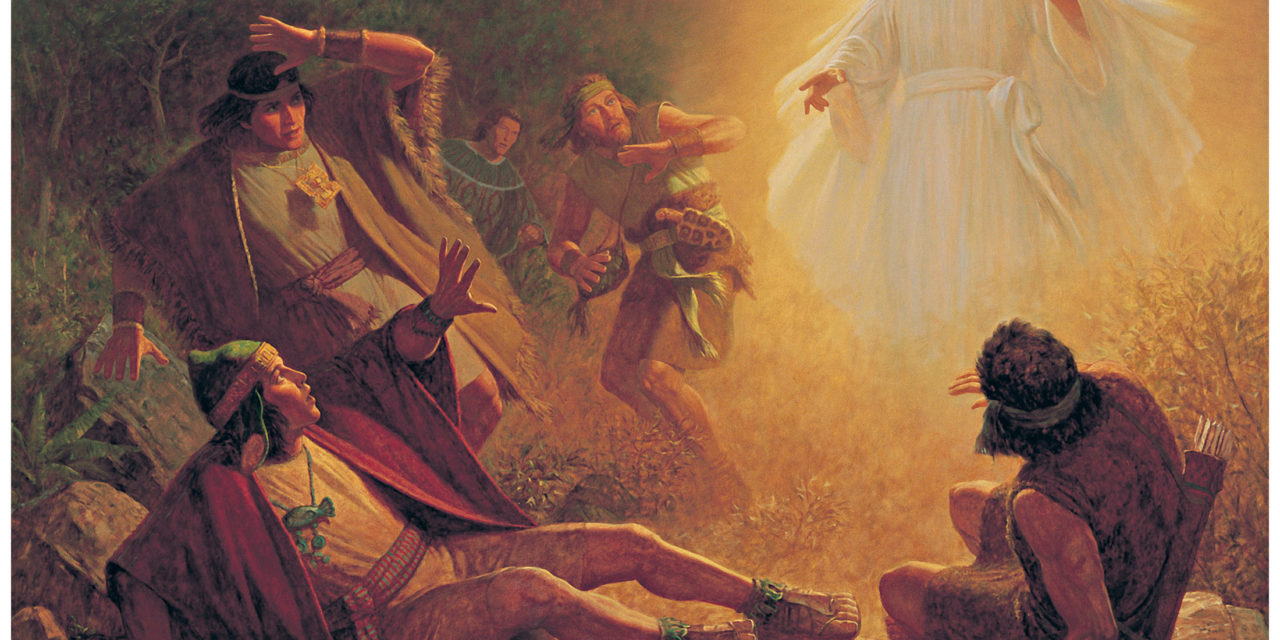While reading The Book of Mormon — reading it as a novel, not proof-texting — I reached the chapter of Alma 36. I realized that Alma (the Younger, as he is called), used the word “murder” in a way that we do not use it today. Alma is leaving his testimony with his son, Helaman, and he recounts his own experience of becoming born of God.
Remember, Alma was the guy who went around with his friends — the sons of Mosiah– and preached against the word of God. According to Alma, he and his friends went about to destroy the church of God. They led many people astray, to the great dismay of his father, Alma (Sr.).
Alma tells his son Helaman, that when the angel of the Lord appeared to him, he fell to the ground and
Yea, I did remember all my sins and iniquities, for which I was tormented with the pains of hell; yea, I saw that I had rebelled against my God, and that I had not kept his holy commandments.
Yea, and I had murdered many of his children, or rather led them away unto destruction; yea, and in fine so great had been my iniquities, that the very thought of coming into the presence of my God did rack my soul with inexpressible horror. (Alma 36:13-14)
As I read “I had murdered many of his children” — I thought, wait when did he murder innocent people? (And I’m thinking, mortal death.) But as I continued to read, he explains his use of the word, “murder” — “rather led them away unto destruction.” Alma is explaining that when he rebelled against God and went out to lead others to do the same, he was leading them away to destruction. This is what he called murder — “leading them away to destruction.”
This is rather significant because he later confronts his son, Corianton about the sin of chasing the harlot Isabel while he was supposed to be bringing the gospel to the Zoramites. In our words, Corianton was leading them astray. This hurt Alma to the core, because of his own sins of the past leading the people away from God. Thus, he tells his son, Corianton:
Suffer not yourself to be led away by any vain or foolish thing; suffer not the devil to lead away your heart again after those wicked harlots. Behold, O my son, how great iniquity ye brought upon the Zoramites; for when they saw your conduct they would not believe in my words.
And now the Spirit of the Lord doth say unto me: Command thy children to do good, lest they lead away the hearts of many people to destruction; therefore I command you, my son, in the fear of God, that ye refrain from your iniquities; (Alma 39:11-12)
Alma is using the same phrase – lead away the hearts of many people to destruction – that he explained was murder. Just before this, Alma explains to Corianton his sins:
Yea, she did steal away the hearts of many; but this was no excuse for thee, my son. Thou shouldst have tended to the ministry wherewith thou wast entrusted.
Know ye not, my son, that these things are an abomination in the sight of the Lord; yea, most abominable above all sins save it be the shedding of innocent blood or denying the Holy Ghost?
For behold, if ye deny the Holy Ghost when it once has had place in you, and ye know that ye deny it, behold, this is a sin which is unpardonable; yea, and whosoever murdereth against the light and knowledge of God, it is not easy for him to obtain forgiveness; yea, I say unto you, my son, that it is not easy for him to obtain a forgiveness. (Alma 39:4-6)
If you continue to read Alma’s counsel to his son, you will see that Corianton has not committed the unpardonable sin of denying the Holy Ghost, because he can repent for what Alma calls “murdereth against the light and knowledge of God” — which in this case was chasing after the harlot while he was preaching the gospel — leading the people astray.
I do not think that sexual sin is the sin next to murder is a correct interpretation of this discourse. Alma’s use of murder appears to be — purposely leading people astray when you are supposed to be showing them the way — what Alma calls murder — because you destroy their souls if you are successful in leading them astray.
I’ve looked at this before when I read about Elizabeth Smart.


